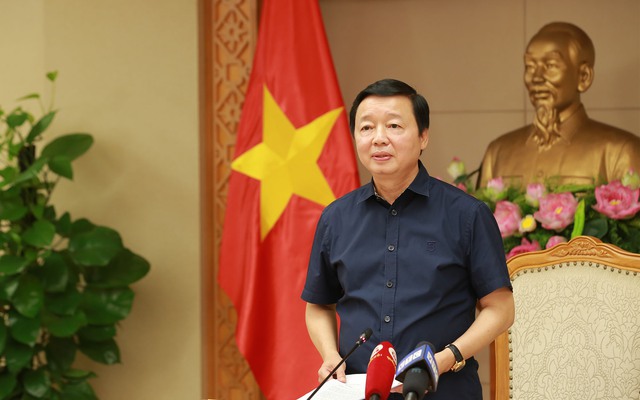Vietnam to set up national online job exchange platform
The national online job exchange platform aims to effectively monitor human resources management in both public and private companies.
Vietnam is expected to set up a national online job exchange platform that will also allow the inclusion of international employment agencies.
| Deputy Prime Minister Tran Hong Ha at the meeting. Photos: Minh Khoi |
Deputy Prime Minister Tran Hong Ha made the remarks at a government meeting on August 21, noting that such a model would help safeguard the rights and welfare of overseas workers.
"The goal of a national online job exchange platform is to effectively monitor human resource management in both public and private enterprises," he said.
He tasked the Ministry of Labor, Invalids and Social Affairs with standardizing data and establishing links between placement agencies and job exchange platforms. The goal is to provide seamless and comprehensive access to job opportunities for businesses and workers.
As the Deputy Prime Minister noted, the legal framework for employment, real estate, land, science and technology is well defined. Although the model of brokerage centers and trading platforms has partially met the needs over time, it has also shown its limitations.
Le Van Thanh, Deputy Minister of Labor, Invalids and Social Affairs, pointed out that the country currently has 82 public employment service centers and 500 private recruitment agencies to bridge the gap between labor supply and demand.
| Overview of the meeting. |
"However, the technological infrastructure remains outdated, resulting in an unsynchronized job database. There is a lack of cooperation between agencies and enterprises and limited supervision over the transparency of employment transactions," Thanh said.
In light of these circumstances, Thanh stressed the need to create a national online job exchange that can be seamlessly integrated with existing platforms. He stressed the need for the government to set standards for collecting and updating employment data nationwide on the platform.
As for the establishment of a real estate trading platform, Deputy Minister of Construction Nguyen Van Sinh noted that by the end of 2020, a total of 1,600 such platforms became operational nationwide. This initiative was aimed at curbing informal transactions and minimizing tax losses.
However, the current legal framework does not require organizations and individuals involved in real estate transactions, such as sales, leases, or rentals, to use these trading platforms.
"This situation has implications for both the market and public administration and poses challenges. The existing criteria for setting up real estate trading platforms are inadequate, complicating the government control," Sinh said.
In this regard, the Ministry of Construction has proposed the inclusion of regulations that require certain types of real estate transactions to be conducted through these platforms to protect the people's interests, prevent tax evasion, and promote a healthy market.
"This exchange would also serve as a tool for State information management, thereby facilitating the formulation of market regulation policies," he noted.
Deputy Minister of Natural Resources and Environment Le Minh Ngan emphasized that while a land transaction market exists, it remains characterized by instability, opacity, and a lack of linkage to other production markets. Inadequate information on land transactions makes it difficult for investors to access the market. In addition, there is currently no mechanism to compile land prices and other information in the market.
Ngan stressed the necessity and urgency of establishing a real estate trading platform, including land use rights transactions, to ensure government supervision. He expected that such a platform would serve as a basis for setting market-based land prices, curbing speculation, reducing the possibility of bubbles, and combating corruption and money laundering.
Agreeing with the proposal to establish a nationwide trading platform for real estate and land use rights, Deputy Prime Minister Tran Hong Ha stressed the importance of fostering a conducive environment for the healthy development of private exchanges.
Ministries and sectors are responsible for working out operational mechanisms and defining responsibilities for these platforms in cooperation with enterprises and traded commodities, Ha said.
The Deputy Prime Minister stressed the need to establish a mechanism to encourage organizations and individuals involved in non-commercial real estate and land use rights transactions to use the trading platform.













